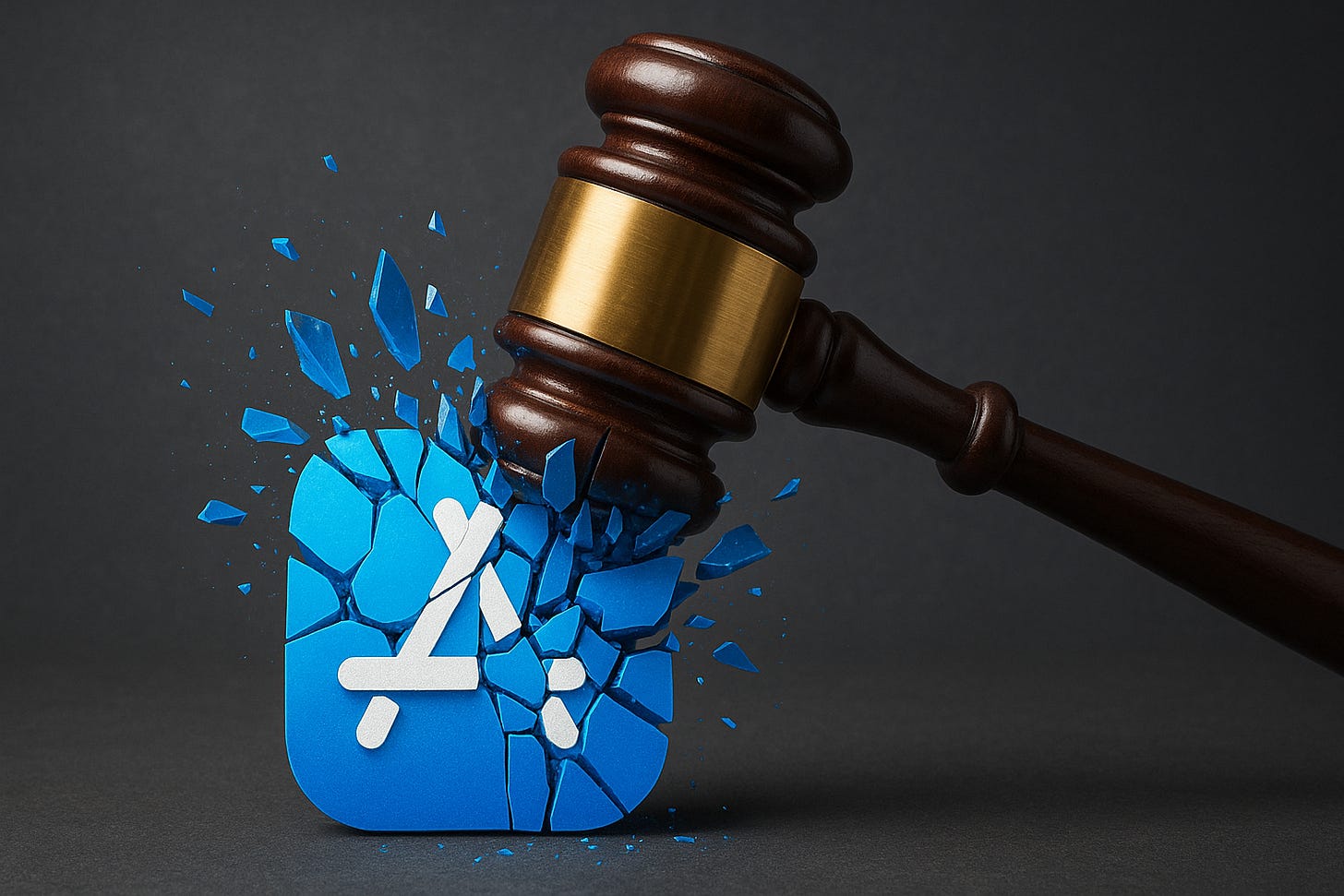The court hammers the App Store
I’ll leave it to lawyers and others to do a detailed breakdown of this week’s important court hearing, but I wanted to provide some high-level thoughts on the situation. Here’s a brief summary from Grok about what the court ruled:
On April 30, 2025, U.S. District Judge Yvonne Gonzalez Rogers ruled that Apple violated a 2021 court order aimed at increasing competition in its App Store by imposing a 27% fee on developers for purchases made outside the App Store and using warning messages to deter external payments. The judge found Apple in contempt, banning the company from collecting commissions on external purchases, restricting developers’ ability to include links or buttons for outside payments, or interfering with consumer choices beyond neutral notifications. Apple and its executive Alex Roman were referred to federal prosecutors for a criminal contempt investigation due to willful non-compliance, with the judge criticizing Apple’s leadership, including CEO Tim Cook, for defying the injunction. Apple plans to comply but will appeal the decision, while Epic Games, which brought the antitrust lawsuit, hailed the ruling as a victory for developers and consumers.
First, I’m not wedded to any aspect of Apple’s App Store terms and policies. I don’t work for Apple, nor am I a third-party app developer. Apple’s commission fees were cheered by developers when Apple announced them in 2008. Since then, Apple has made multiple changes to its fee structure. People often talk about Apple’s “30% cut” for two reasons: a) it was the original fee across the board, and b) Apple’s detractors like to make Apple look as greedy as possible. The reality is that for a long time now Apple’s commission fees have been 15% for developers making less than $1 million in annual revenue, and 30% for those making more than that. So the actual “little guy” developer pays much less than large companies.
Second, even if you largely agree with the outcome of this court decision, the way we got here is slimy. This whole case began with Epic Games (which is a multibillion-dollar company, so hardly a “little guy”) blatantly and publicly violating Apple’s App Store terms of service, a commercial agreement Epic entered willingly, by allowing an external payment service in their popular Fortnite game. They did this to force Apple to kick Fortnite out of the App Store (which Apple did in response) so that they could launch a prewritten lawsuit against Apple and launch a PR website attacking Apple’s business practices. They did this in the hopes that the government, the only true monopoly in the United States, would force Apple to give Epic a new business relationship that they found more favorable. So again, even if you’re happy with the ultimate outcome this week, I see Epic Games and its CEO Tim Sweeney as being quite villainous and contemptible.
Third, I’m not sure this week’s ruling is going to hold up on appeal. I’m not a lawyer, so what do I know, but her ruling seems to be that Apple didn’t follow the spirit of her 2021 ruling. Nothing in that 2021 ruling, as far as I’m aware, forbade Apple from providing a warning screen to end users before they were taken to an external website to use a payment system Apple can’t stand behind. And nothing in her ruling prevented Apple from charging developers a commission fee on purchases made on those third-party payment systems. I’m just not sure how you could hold Apple to be in violation of what the judge would have not liked but didn’t specify in court or in legal documents.
Fourth, I’m not sure much will change even if Apple is vindicated on appeal. Apple is already approving apps that have simple links to external payment processing (with no warnings), and processors like Stripe have already provided developers with documentation on how to implement this now that Apple is no longer collecting the 12%/27% commission on those transactions. I think it would be very hard to put that toothpaste back in the tube even if Apple is found to be legally justified in doing so.
Finally, if you’re just a regular consumer of digital products like I am, the effects of this week’s ruling will be a mixed bag. On the one hand, you’ll be able to subscribe to third-party services less expensively or at least with fewer hassles. If you want to subscribe to Spotify, you’ll now be able to do so via a simple link from their app to their preferred payment processor instead of having to purchase that subscription using Apple’s payment processing. That means that Spotify won’t be passing on the cost of Apple’s commission fee directly to you via a more expensive in-app purchase. The tradeoff is that there will be more opportunities for bad actors to release apps with insecure payment mechanisms or for third-party malicious actors to do some kind of man-in-the-middle attack on your personal information.
Your Apple Update is a reader-supported publication. If you enjoy this publication, please consider becoming a paid subscriber.




